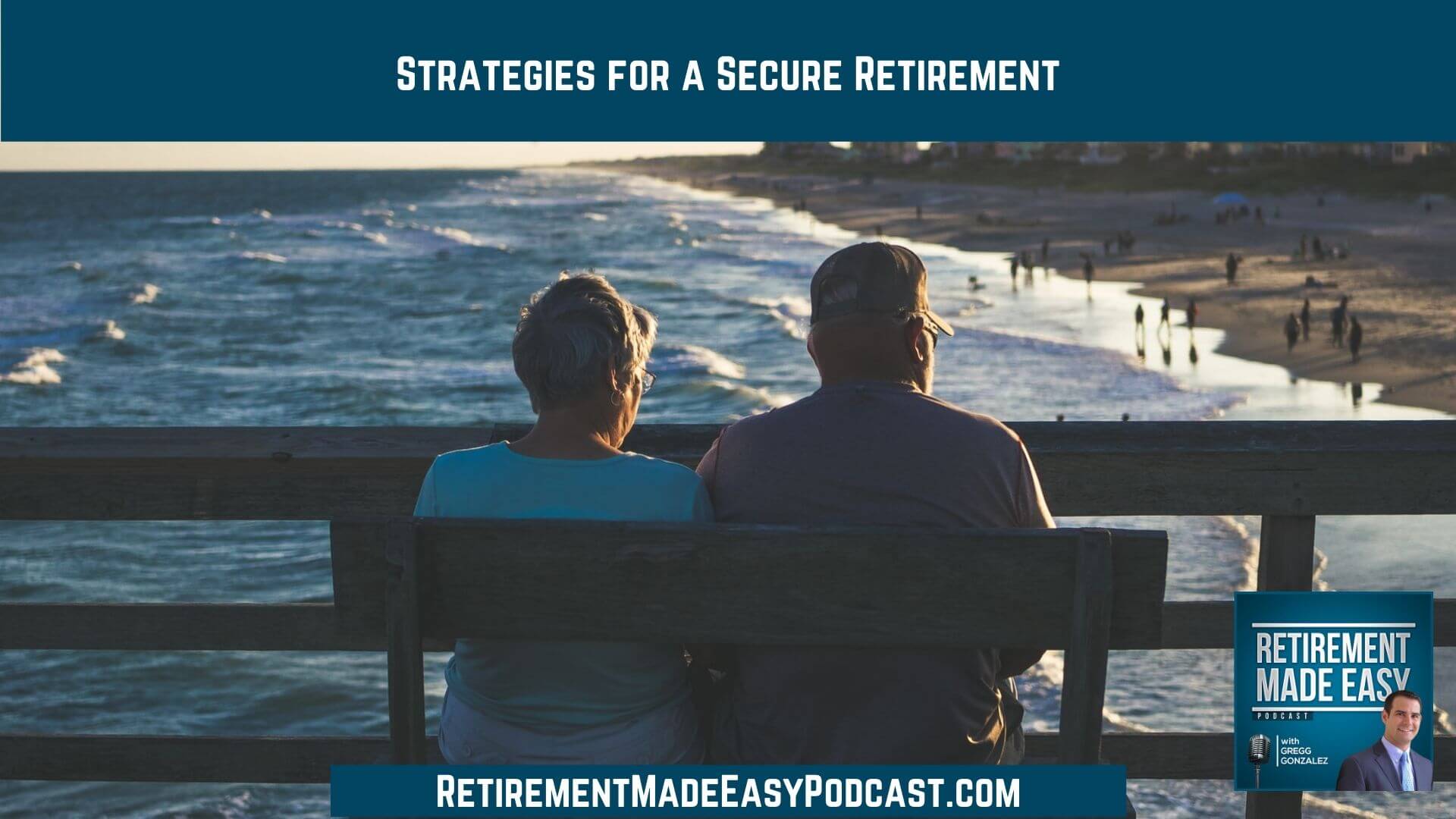
Are you close to retirement? Are you ready to close up any loose ends you may need to deal with? In this episode of Retirement Made Easy, I share a few simple tips to help you get on track for the retirement you’ve been working for. I also answer a couple of listener questions that came in over the last few weeks. Check it out!
You will want to hear this episode if you are interested in…
- [2:25] Strategies to reach a secure retirement
- [9:09] Ask for advice + get help now
- [10:19] WHY I don’t give specific holding advice
- [14:52] Pension: lump-sum or annual annuity
Tips to jumpstart a secure retirement
Imagine you’re selling your house. Your real estate agent suggests a small change that would greatly enhance the value of your house. You’d make the changes and improvements, right? A simple change like updating lighting, redesigning landscaping, or redoing a bathroom can make a huge difference. It will likely drastically impact the outcome of your sale. Just like you want a successful outcome with your home sale, you want a successful retirement. So what can you do in the months leading up to retirement to improve your odds of a smooth transition? Here are a few ideas:
- What if you do a 401k or Roth IRA catch-up and max out your retirement accounts before your retirement?
- Are you retiring before age 65? Can you max out your HSA to help cover medical expenses?
- Can you pay off your mortgage? Or pay down other outstanding debt (credit cards or car loans)? Find ways to clean up your debt.
- What can you get rid of? Maybe disability insurance is no longer necessary. People carry life insurance to protect their spouse and family should they pass away prematurely (during their earning years). If you retire, you might not need life insurance.
- How will you handle health insurance in retirement? Will you jump on COBRA before Medicare? Or do you have union health insurance to bridge the gap? Whatever you decide, you must be prepared and plan ahead.
- Do you get paid out on your unused vacation or sick days? I’ve seen as much as $25,000 checks being cut. Maybe you can put a portion in your 401k or use part of it for a vacation.
- You need to have a plan for when you’ll initiate a pension and social security benefits. When you claim social security, you can claim it up to 90 days before your projected retirement date. Don’t wait—it takes a couple of months to process and get your first check.
I have people that call me all the time where—if they had called me two years sooner—we could’ve done a lot of things to improve their situation. There’s only so much that can be done in the weeks leading up to retirement. Go get our retirement checklist to help you walk through your preparations for a secure retirement.
WHY we don’t give specific holding advice
One listener asked why we don’t give specific investment or portfolio advice. We don’t give specific investment and portfolio advice for one simple reason: I need to know your specific situation and what you’re trying to accomplish. I don’t know if you need income from your portfolio, what its value is, or even where you’re holding it. Your age, goals, and risk tolerance will all be different. Just like a mechanic can’t fix your car without looking under the hood and a doctor can’t give you medication without a full workup, I can’t give you advice on investments without a full analysis.
Pension: lump-sum or annual annuity
One of our listeners, Jeff, can get close to $1 million in a lump-sum payout, or have an annual annuity option of $52,000. What might be the best option for Jeff? He’s 68, divorced, and has two adult children who are financially responsible. First I’d like to point out that because Jeff is divorced, there is no survivor benefit to pay out for a spouse. If Jeff took the $52,000 annuity, it would only pay for his lifetime. The different routes Jeff can take depends on information that I don’t have, such as:
- What are your retirement goals? Do you want to leave an inheritance for your two children? Then I would lean toward the lump-sum option.
- Do you have existing life insurance already in place to leave an inheritance for your children?
- What does your health look like? The annual pension option only pays for as long as you’re alive—in most cases. Single life means it pays $52,000 as long as you’re alive. Do you have a 10-year-certain option? You may only get $48000 a year, but it would pay out to Jeff—or his beneficiaries—for the next 10 years. If Jeff passes away in year 2, his two children would be the beneficiaries of $48,000 for the next 8 years. It would stop at the end of 10 years.
- What’s the break-even? You’d have to survive an additional 19 years for the $52,000 a year to equate to the $1 million.
If you do decide to take the lump-sum and roll it over into a self-directed IRA or 401k, you want to be investing that money wisely—once the money’s gone it’s gone. Hopefully, that helps give you an idea of the options you have!
Resources & People Mentioned
- Get our retirement checklist!
Connect With Gregg Gonzalez
- Email at: Gregg@RetireSTL.com
- Podcast: https://RetirementMadeEasyPodcast.com
- Website: https://StLouisFinancialAdvisor.com
- Follow Gregg on LinkedIn
- Follow Gregg on Facebook
- Follow Gregg on YouTube



